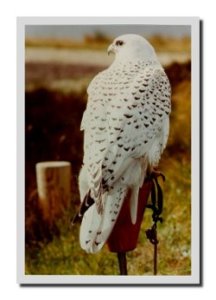We believe that there is a way for family members to enjoy elderhood.
Old age should not be considered a threat, but instead, a promise to guide us toward a more satisfying way of living. As surely as adulthood differs from childhood, old age is different from adulthood.
Age has a way of changing us. Gradual adaptations that occur over time enable us to maintain equilibrium. Although physical strength and capacity decline, old age has a richness and complexity that offsets loss of vigor.
Longevity is an astonishing accomplishment and to live a long, abundant life depends, at least in part, on society's willingness to assist.


One-On-One Eldercare
Although most elders would prefer to remain independent, situations arise where it's no longer possible. No individual can or should stand alone, nor can any family. This is where Cypress Assisted Living becomes an alternative.
Apart from the difference in intimacy and one-on-one eldercare that we are able to provide, it is our philosophy of elderhood that sets us apart from all other nursing homes, assisted living centers, and personal care homes in northwest Houston.
The three plagues of the nursing home environment—loneliness, helplessness, and boredom–are overcome with companionship, opportunities to give, and spontaneity. We are also committed to the well-being of our caregivers, helping them achieve personal goals.
The "shahbaz" concept links the needs of each group-elder and caregiver-so that both are able to nurture each other. The interdependence of the two groups creates an environment rich in trust and respect. They need and complete each other.
Shahbaz the Falcon
Thomas, William H. (2004). What are old people for? Acron, Massachusetts: Vander Wyk & Burnham.

There was once a king who got himself into a terrible fix. He wasn't bad, just a man who lost his way. The land the king ruled was far from the sea, far from the overland trade routes, far, it seemed, from any place anyone wanted to be. Still, his subjects were a sturdy lot. They endured, meeting hardship with a laugh and a smile whenever they could. The people comforted each other with the old saying "A poor man living in peace is better off than a rich man in the midst of strife." Deep inside, they held the hope that someday things would get better.
Early in his reign, the king kept to his father's custom of moving among the people, listening to their stories, laughing at their jokes. He held court so that the people could seek justice from him. But the temptations of power proved too great. Gradually, he set the old ways aside. He began staying up all night, scheming with his ministers and playing the lords and ladies against each other. Heavy black curtains were hung over the windows in his room and he slept until noon.
Every day, after lunch, he called for his falcon and went hunting. This he loved above all else. At dinner, his belly full of ale, he would often roar, "Shahbaz!" for that was the falcon's name. Life got worse, not better. The kingdom grew disorderly. Fights broke out. Bandits prowled the ridge tops and forests. Brother turned against brother, friend against friend. The people became afraid, and Shahbaz saw it all. Her keen eyes found a house in flames, a woman crying, a child dressed in rags. She returned each day with game for the king's table, but something was changing inside her.
One day as she wheeled through the deep blue sky, Shahbaz saw an old man stumbling in a thicket. He had been chased from the roadway by bandits and was now lost. Shahbaz lifted her left wing and arced slowly toward him. As she drew closer, she could see that he was cowering in fear. A mountain lion had cornered him and was preparing to pounce. Now, for the first time, the falcon's heart filled with compassion for a human being. This warm feeling melted all doubt.
Shahbaz tucked her wings and dove. Streaking out of the sky like an angel of mercy, she thrust out her talons and buried them in the lion's neck. The beast roared as it struggled to free itself from the falcon's grip. Teeth, claws, beak, and talons whirled in a terrifying struggle until, at last, the lion surrendered. Shahbaz released her grip and took flight; the lion fled in terror. The man was bewildered by what he had seen but thankful for his safety. Shahbaz returned to the king but had no game for his table. He berated her, not noticing how worn and weary she appeared.
The next day the king went out to hunt with Shahbaz on his arm. In the midday heat, he released the tresses and the falcon took flight. Immediately, she set a course for the place where she had protected the old man. She found him even farther from the road. He had wandered into a ravine where there was no food or water. The afternoon sun beat down on him. Again Shahbaz brimmed with compassion. Putting aside the task the king had given her; she descended from the sky and landed in front of the astonished man. Shahbaz was made mighty by the power of her loving-kindness, and she knew just what to do. With a short hop, she came to a large stone. With her beak she struck the stone - once, twice, thrice. The rock split open and water - clean, cold water - flowed from its depth. The thirsty man drank. Shahbaz took wing and hunted, returning to the old man with game. Then, before leaving, she approached a pile of brush, striking it with her beak once, twice, thrice. With that, it burst into flames. Having sustained the man with food, water, and fire, she took wing and returned to the waiting king, having once again failed to supply the king's table. "Perhaps I have been feeding you too well," he snapped. "A night without supper might focus your mind."
The next day the king went as usual to the hunting grounds and released his falcon. She hurtled skyward and sought the lost man. The search was long and difficult, and she feared that he had died. At last, she glimpsed him in the distance. Weak with hunger, she made her way there. He was alone and in despair. As Shahbaz settled down on a branch, he looked up at her through tear-filled eyes. The remarkable creature who had fought off a mountain lion, fed him, and given him water and a fire had returned to him. Thinking that perhaps this magical creature might understand his grief, he poured out his heart to Shahbaz. His brothers were dead, as were his wife and their children. He had been seeking his father's village when the bandits had attacked. He and his family had suffered greatly in this time of violence and disorder, and it was all due to that fool of a king.
As the great falcon listened, loving-kindness stirred once more within her. Moved by the man's story, the falcon now found the gift of speech. She spoke of knowing love and loss. She spoke of all that she had seen in the many years she had soared above the kingdom. She told the man not to despair; she knew the way to his ancestral home. She stayed with him through the night, lulling him to sleep with stories of the great and noble people she had seen and known. When the morning dawned, she took flight and led the man to a stream that flowed into the river that lay beside the village of his father. This done, she returned to the king's castle.
Alighting on the castle wall, she found the king preparing for a hunt - with another falcon on his arm. As the hunting party went forth, Shahbaz moved to a low branch that hung over their path. The king saw her and condemned her loudly as an unworthy traitor. Shahbaz, he said, no longer deserved to be known as a royal falcon. Another bird could take her place - it did not matter to him. The king's fury was great, but Shahbaz did not stir. Instead, she fixed him in her gaze. Finally, his rage spent, the king turned away. Then Shahbaz spoke: "I have watched you and I have watched your kingdom. You think highly of yourself, but you have ruled poorly. The people suffer; they cry out from fear, from hunger and thirst. They are lost, and yet you hear them not."
The king and his men listened in stunned silence. Then a royal counselor cried out, "This is an abomination. No such beast should have the power of speech; this is surely the work of an evil hand. I plead with your majesty to destroy this foul creature at once." At this, an archer drew his bow and aimed at the falcon. Shahbaz did not flinch; she kept her keen, unwavering gaze upon the king. Silence hung in the air, and then she spoke again:
"You are not a bad man. You could do much for the people of this land, even yet. But you must change." Again the counselor cried out for permission to kill Shahbaz. The king waved him off. In the long, stony silence that followed, the king's mind returned to his youth. He remembered the peaceful days of his boyhood when he first went hunting with his grandfather and the great man's royal falcons. Soothed by these memories he, at last, allowed her words to enter his heart. Shahbaz offered the king a partnership. She and her kind would sail the skies above this land, seeking always to protect, sustain, and nurture the people. The king would put down his scepter and his crown and become a royal falconer, devoting himself to the training and well-being of the royal falcons.
With time, the man who had been king became a skilled falconer. All falcons came to be known by the name of the first, each a Shahbaz. This is how the people found peace and comfort at last. Whenever they looked into the great blue sky, they could find a Shahbaz there. The days of the king and his servants passed from memory and a new partnership - between the people and the royal falcons - came into being and endures even to this day. No one can remember a time when the morning light did not reveal a Shahbaz circling high overhead.